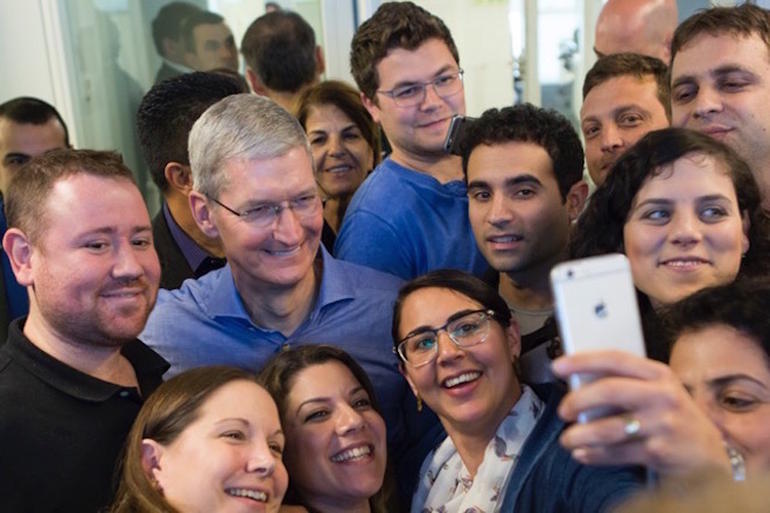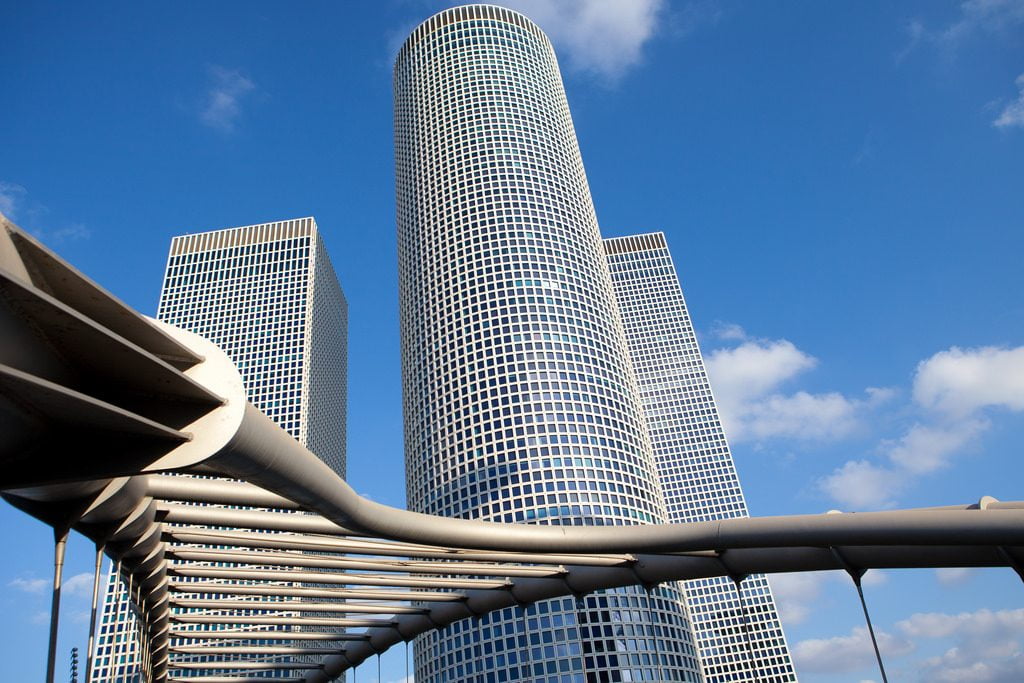At least 87 multinational corporations have opened up R&D or innovation centers in Israel over the past three years, a majority after acquiring an Israeli startup. This is according to a new study showing the scale of foreign interest in Israeli technology and talent by Start-up Nation Central, an Israel-based non-profit that tracks the Israeli innovation ecosystem.
The study showed that, since 2014, international companies from 18 countries have launched either R&D or innovation centers in the “Startup Nation.” The wide majority were US-based companies, 49 in total, with Canadian corporations opening six, British and Chinese setting up five each, Japanese with three, Swiss, German, French, Indian, Dutch and Russian with two and Brazilian, Swedish, Ukrainian, Spanish, Argentinian, Australian and Thai companies with one each.
According to the report, 54 of the 87 companies that opened Israel centers between 2014 and 2017 did so after acquiring an Israeli startup. The report also shows that 2016 was a busy year for multinationals, with 32 such centers launched, compared to 2015’s 29 and 2014’s 19. So far in 2017, just seven such centers were launched, with significant announcements such as Chinese electronics giant Haier’s Israel Innovation Center, disclosed just last month, not included in the study. Hyundai’s and SEAT’s similar recent announcements were also not taken into account.
SEE ALSO: Germany’s Continental Buys Israel’s Argus Cyber Security
Israel already houses innovation centers or local branches of international technology giants such as Microsoft, Intel and Google which have been operating in the country for at least a decade. Israel’s highly skilled workforce, and especially graduates of the Israeli military’s elite units, has garnered much international attention as tech companies have flocked to the country to invest in or acquire Israeli startups and recruit local talent.
Seven of the companies listed in the study employ up to 10 local employees with another seven employing over 200, including three – the US’s Dentsply Sirona and Proquest and Canada’s D+H – with over 500 local talent.
Start-Up Nation Central’s VP of Strategic Partnerships Karin Gattegno tells NoCamels that the multinational corporations’ moves to launch centers in Israel were just part of the story and that global companies are taking a more “holistic approach” to the Israeli startup ecosystem.
“Many are opening R&D centers but some are trying different ways of getting into the market, either by putting representatives on the ground, or through accelerators and incubators. They are trying different things,” she said, adding that these corporations were “critical for early-stage Israeli startups.
“The startups need these corporations because of their global insights and the opportunities they bring, they assist our ecosystem with development of products and solutions and their contributions are important,” she said. Indeed, foreign investment in Israeli companies has risen sharply over the past five years, with foreign investors putting in a record $2.85 billion, “which accounted for 60 percent of the capital proceeds,” compared to Israeli investors’ 40 percent, according to a comprehensive study published by the IVC research center’s 2017 Israel Hi-Tech Yearbook.
Sign up for our free weekly newsletter
SubscribeThe multinational companies, said Gattegno, bring the “know-how, our startups learn about the global markets and the products and solutions they could offer.”
There are drawbacks, however. Gattegno explained that there was a “limited pool of Israeli engineers and computer scientists.”
“Think of it like a well.” Israel, she said, needs to involve different sectors who are not currently in the hi-tech workforce or who participate in a limited sense like Israel’s Arab population and ultra-Orthodox Jews, groups who have historically low employment records.

Apple CEO Tim Cook during his visit to the company’s new R&D center in Israel in 2015, courtesy
While the percentage of employees in the hi-tech industry in Israel is higher than any other country, according to Israel’s Central Bureau of Statistics, with 8.3 percent working in the hi-tech sector in 2014 (compared to 4.7 percent in the UK or 4.1 percent in Germany, for example), just over 16,000 of them are not Jewish (out of an estimated 283,300). Israelis’ participation are in the labor force stands at 63.94 percent, according to statistics made available by the Bank of Israel for 2017 Q3.
Gattegno said those in the industry are aware of the shortage, as was the Israeli government, which has for years attempted to bring more members of the Israel’s Arab community, some 20 percent of the national population, and ultra-Orthodox Jews into the labor force. In 2015, the Israeli Economy Ministry launched a NIS 10 million program over three years to integrate academics from the Arab, Druze, and Circassian communities into the hi-tech industry. Other programs are “also in the works,” she said.
“We also need to be looking not just at graduates of computer science and engineering but also at those with degrees in other fields,” she indicated, like medicine, biology, biochemistry, and to train them for the hi-tech sector.
Gattegno said the talent shortage was not at a critical stage, however. “Israel’s hi-tech sector has proven itself and is internationally recognized, we just need to expand our thinking,” she said.
Related posts

Editors’ & Readers’ Choice: 10 Favorite NoCamels Articles

Forward Facing: What Does The Future Hold For Israeli High-Tech?

Impact Innovation: Israeli Startups That Could Shape Our Future





Facebook comments